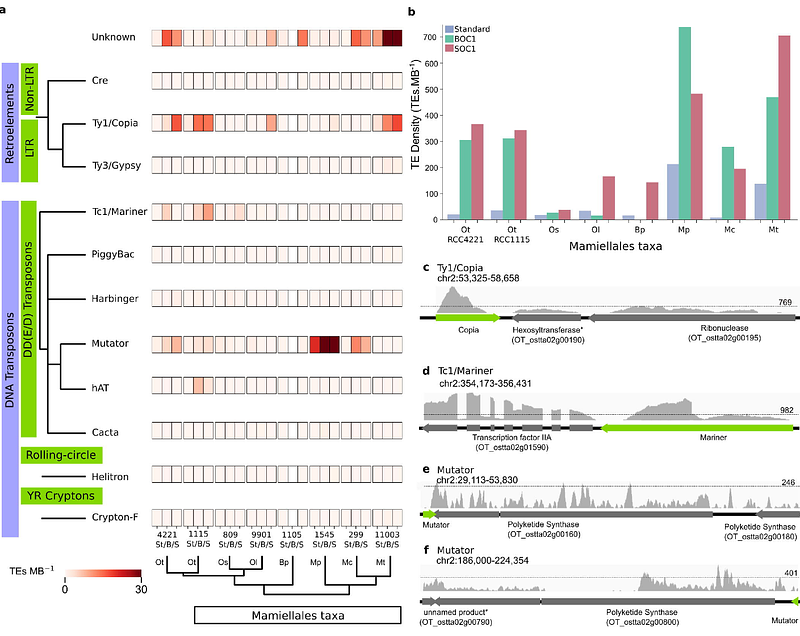Insulated Outlier Chromosomes Drive Metabolic and Evolutionary Innovation in Minimal Eukaryotic Algae

Insulated Outlier Chromosomes Drive Metabolic and Evolutionary Innovation in Minimal Eukaryotic Algae
Valiadi, M.; Harrison, K.; Loe-Mie, Y.; Williams, B. A. P.; Ankrett, D.; Smirnoff, N.; Monier, A.
AbstractMamiellales, a group of marine picoeukaryotes including Ostreococcus, the smallest known free-living eukaryote, exhibit ecological success despite compact genomes. We investigate how these organisms retain adaptive potential under such constraints, focusing on two outlier chromosomes with extensive low-GC regions. Using an integrated multi-omics approach--Hi-C, transcriptomics, genome-wide methylation analysis, and metabolomics--we show these atypical regions act as genomic innovation hubs, enriched in transposable elements, introns, and highly expressed genes. These regions display reduced methylation and are spatially insulated by the only topologically associating domain in the genome. Notably, they harbour giant type I polyketide synthase genes, whose diversity across Ostreococcus species is mirrored by distinct polyketide profiles. We propose that Mamiellales localise evolutionary experimentation to these insulated regions, balancing genome minimisation with adaptive flexibility. Our findings reveal a novel strategy for maintaining genomic plasticity in streamlined eukaryotes and provide new insight into the mechanisms driving Mamiellales\' ecological success.